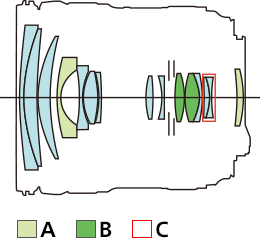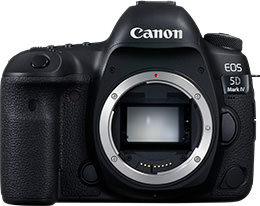What lens would a professional photographer recommend for night photography? Shigeki Kawakita, known for his images of city nightscapes, would choose the EF24-70mm f/4L IS USM. He explains why, with sample shots taken with the lens mounted on the EOS 5D Mark IV. (Reported by: Shigeki Kawakita)

An f/4L standard zoom that offers a good balance between mobility and image quality
Contrary to popular belief, you do not always need to have a very bright lens for night photography. I always use the EF24-70mm f/4L IS USM for night photography, and for this shoot, I have chosen to pair it with the EOS 5D Mark IV.
24mm

EOS 5D Mark IV/ EF24-70mm f/4L IS USM/ FL: 24mm/ Aperture-priority AE (f/11, 20 sec., EV-1.3)/ ISO 800/ WB: White fluorescent light
I often use a wide-angle focal length to capture a night shot of highway junctions because of their gigantic scale. With the EF24-70mm f/4L IS USM, a sharp image can be produced without aberration in the peripheral areas. The starburst effect created from the street lights, with a large number of narrow lights rays extending outward, adds a stunning touch to the photo.
On this lens, the optimum quality is achieved at an aperture that is around two to three stops narrower than the maximum. When you shoot scenery at night, it is absolutely essential to ensure a sharp image quality, which is why I have chosen an aperture setting between f/8 and f/11 for most of the shots. In all cases, the lens was able to produce a sharp depiction regardless of the focal length. Starbursts were created from each street light to accentuate the composition. The nine aperture blades of the EF24-70mm f/4L IS USM produce a number of light rays that is double that of the blades (18 light rays), resulting in a starburst effect of exquisite quality.
70mm

EOS 5D Mark IV/ EF24-70mm f/4L IS USM/ FL: 70mm/ Aperture-priority AE (f/4, 1/30 sec., EV±0)/ ISO 8000/ WB: White fluorescent light
I took this handheld shot as the location did not allow me to use a tripod. This is a constraint that one often encounters when photographing cityscapes. Here, I used the maximum aperture to gain sufficient shutter speed. For this reason, the image produced does not reflect the maximum resolving power of the lens, but it is of adequate quality for actual use.
One of the impressions that I get from using the EF24-70mm f/4L IS USM-EOS 5D Mark IV pairing is that the image quality is close to that of the EOS 5DS R, a camera which I usually use. The full-frame sensor and the sufficiently high pixel count of approximately 30.4 megapixels, in combination with the depictive power of the lens, reproduces the buildings and structures in fine detail.
For locations where the use of a tripod is not allowed, handheld shots can be captured with the ISO speed raised and the IS feature enabled. At approximately four shutter speed stops, the IS effect is tremendous.
With all these, I conclude that the EF24-70mm f/4L IS USM is a lens you can depend on for night photography, regardless of the scene.
For more tips on night photography techniques, you can also read up the articles below:
One Location, Two Looks: Abstract Nightscapes – Tranquillity vs. Vibrancy
Architectural Photography #4: Photographing Buildings at Night
Lens construction diagram

A: Aspherical lens elements
B: UD lens elements
C: IS unit
SPECIFICATION
Lens construction: 15 elements in 12 groups
No. of aperture blades: 9
Closest focusing distance: 0.2m (macro mode)
Max. magnification: 0.7x (macro mode)
Filter diameter: φ77mm
Size: approx. φ83.4×93mm
Weight: approx. 600g
Receive the latest update on photography news, tips and tricks.
Be part of the SNAPSHOT Community.
Sign Up Now!
About the Author
A monthly magazine that believes that enjoyment of photography will increase the more one learns about camera functions. It delivers news on the latest cameras and features and regularly introduces various photography techniques.
Published by Impress Corporation
Born in Kyoto in 1967. Graduated from the Photography Department in the Osaka University of Arts. Nightscape photographer. Active in Japan and overseas as a photographer for books and stock photos. Currently, he takes mainly nightscape shots of new famous places in cities. A member of the Japan Professional Photographers Society (JPS).



































